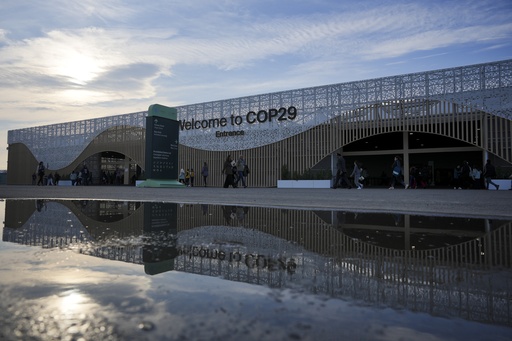
BAKU, Azerbaijan — As the United Nations climate negotiations approached the end of their initial week on Saturday, discussions continued regarding how wealthier countries would finance adaptation efforts for developing nations facing the adverse effects of climate change. Concurrently, activists geared up for what is usually the most significant protest day during the two-week summit.
The planned demonstration in Baku is anticipated to resonate globally, coinciding with a worldwide “day of action” advocating for climate justice, an event recognized annually by various organizations.
At COP29, the name given to these climate talks, negotiators are hopeful for an agreement that could provide hundreds of billions of dollars to economically disadvantaged countries, many of which lie in the Global South and are already experiencing severe weather-related disasters attributed to climate change. Experts have indicated that approximately $1 trillion annually is necessary to both address the damages incurred and fund a transition to clean energy that many nations cannot afford independently.
On Friday, the negotiations faced criticism on multiple fronts. Two former senior U.N. officials published a letter advocating for a shift from mere discussions to actionable implementation of climate initiatives. Additionally, prominent figures, including former U.S. Vice President Al Gore, expressed concerns about the noticeable influence of the fossil fuel sector and nations reliant on fossil fuels dominating the discussions. An analysis revealed that there were at least 1,770 individuals linked to the fossil fuel industry among the attendees at the Baku summit.
Yalchin Rafiyev, the chief negotiator for the conference, conceded that negotiations for a binding agreement were lagging but defended the ongoing process. “The COP process has already yielded results by lowering projected warming and providing necessary financial support,” Rafiyev asserted. “It surpasses any other alternatives available.”
The second week of negotiations may see progress as ministers from various nations, whose approval is critical for any agreements forged by negotiators, begin to arrive at the conference.
